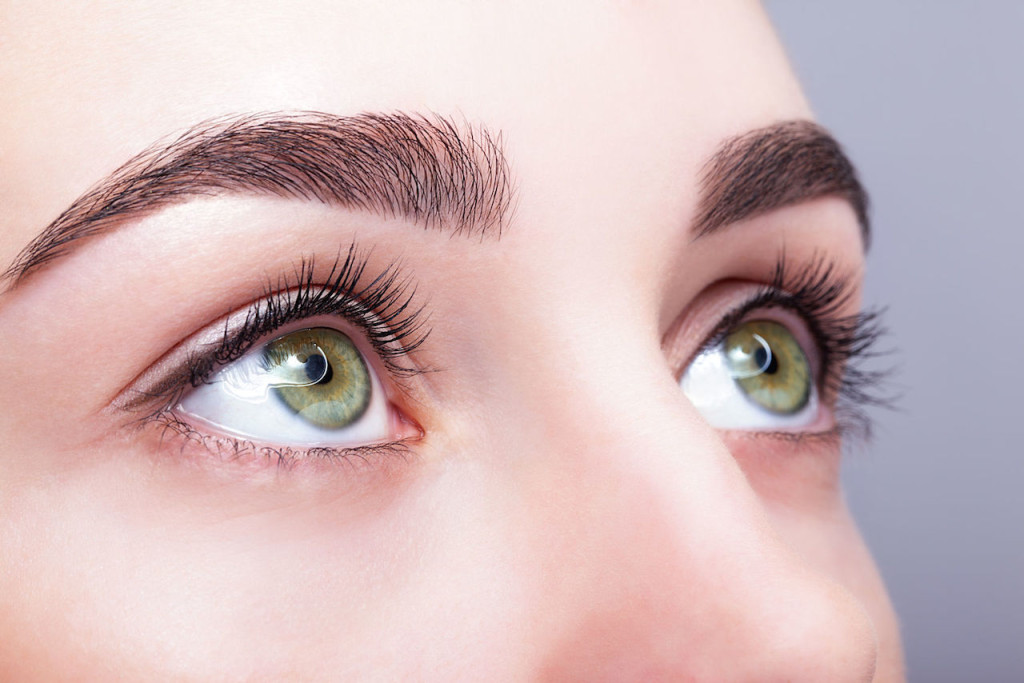 Macular degeneration (MD) is a painless condition of eye that is responsible for the gradual loss of central vision with optimal retention of peripheral vision. Central vision helps to see things in front of your eyes. For example, it enables you to read or watch television. This condition is manifested by having difficulty in reading written or printed text, having difficulty in recognizing familiar faces of people, and having less vibrant appearance of colors which also involves changes in depth or color perception.
Macular degeneration (MD) is a painless condition of eye that is responsible for the gradual loss of central vision with optimal retention of peripheral vision. Central vision helps to see things in front of your eyes. For example, it enables you to read or watch television. This condition is manifested by having difficulty in reading written or printed text, having difficulty in recognizing familiar faces of people, and having less vibrant appearance of colors which also involves changes in depth or color perception.
Like most other visual field defects and visual abnormalities, the primary pathophysiologic event responsible for macular degeneration is age related wear and tear changes in the visual apparatus. It can affect both eyes but vary in the intensity, severity and speed of progression. There is no 100 percent curative treatment for macular degeneration as of now but a number of management options are available today that can help in reducing the complication and further vision loss. Here are some of the approved macular degeneration treatments.
How to Treat Macular Degeneration
A lot of options are available today to manage the symptoms. You can speak to your healthcare provider to learn more about the following options and find out if these are helpful in your case.
1. Implantable Telescope
Implantable telescope is a small device that is about the size of a pea and has the ability to enlarge the images formed at the retina by reducing the size of the central blind spot, thus it improves the central vision that is affected by the macular degeneration.
This therapy was approved by FDA in July 2010 after pivotal FDA trails. The study provided statistical proof that introduction of implantable telescope within the visual apparatus can significantly help in the correction of vision in people with well-developed macular degeneration. Likewise, introduction of this device is safe for long-term use and is associated with excellent patient compliance.
2. Lucentis
Lucentis is one of the approved treatments for macular degeneration. It is used for the optimal management of the wet variety of macular degeneration as well as advanced macular degeneration that significantly compromise vision. It was approved by FDA in 2006. Lucentis is a drug similar to Avastin, (the drug used for the treatment of colorectal cancer) and is usually administered as an injection directly in the eyes, once every month.
Lucentis inhibit vascular endothelial growth factor (a natural protein in the eye that is associated with the formation of new blood vessels or in other words wet variety of macular degeneration). The primary mode of action of Lucentis is to block the synthesis of vascular endothelial growth factor by blocking the transcription. The abnormal growth of blood vessel in retina is the primary culprit in the development of macular degeneration. Once the new vessel formation has stopped, visual acuity returns to normal with time. Usually lucentis doesn't have any adverse reaction but at time some individuals may develop irritation or side effects when the injection is introduced in the eyes. Serious complications of this therapy may include retinal detachment, inflammation of eyes, elevation of intraocular pressure inside the eye and cataract. Clinical trials of Lucentis are found to be very effective because 95 % participants reported significant improvement or stabilization of vision. Speak to your healthcare provider in detail to learn more about your chances.
3. Macugen
Here comes another macular degeneration treatment. Macugen is yet another US FDA approved drug that is usually administered as an eye injection given once in one and half month (or once every 45 days). It utilizes a therapeutic molecule to attack VEGF in the eye. In minority of the client this drug may lead to some adverse reactions and thus it is absolutely important to discuss with your healthcare provider in detail about the procedure.
4. Eylea
The primary mode of action is to stop the activity of vascular endothelial growth factors in age-related wet macular degeneration. Eylea is also approved by FDA. It is available in the intraocular injectable forms like most drugs listed above. In the beginning of this therapy, three injections are given in 3 months and thereafter the dosing frequency is reduced to once every 2 months.
5. Visudyne Drug Therapy
Visudyne is the drug found to be effective for the treatment of the wet macular degeneration. Moreover it is among the first few drug approved by FDA for the management of macular degeneration. It is commonly prescribed for patients who are experiencing new blood vessel formation at or around the macular region. It is given as an injection that may be given on arm. It exerts its action by producing a chemical reaction within the retinal blood vessels to destroy abnormal vessels.
It is usually a painless procedure. Recent studies have shown that visudyne drug is effective in slowing age related macular degeneration.
6. Laser Treatment
One vital treatment for the age-related wet macular degeneration is laser photocoagulation. In laser photocoagulation treatment healthcare providers use laser rays to seal off or destroy the newly formed blood vessel in order to prevent the leakage. One of the most common complications of using laser treatment is formation of retinal scar that may lead to the development of blinds spots in the visual fields of patient. The laser photocoagulation is not commonly used today to treat wet or age related macular disease. Currently, research studies are underway to identify the techniques that may help in the prevention of scaring with laser photocoagulation.
Now you have known all 6 macular degeneration treatments, you should act fast to avoid more severe consequences.
There are a number of other available pharmacological or interventional options that may make the effective macular degeneration treatments list. More research projects are underway to identify the effective methods to prevent macular degeneration with fewer side effects.
